Our Dream is to Build the Temple Furniture, Like Bezalel Ben Uri
Over 50 years ago, when Kibbutz Lavi built its first synagogue, no one could have imagined it would spark a world-leading furniture enterprise, furnishing over 5000 synagogues. Micha Huberman discusses reconstructing ancient synagogues, building arks over 10 meters tall, and establishing synagogues inside supermarkets and malls.
 Micha Huberman CEO of 'Lavi Furniture Industries'
Micha Huberman CEO of 'Lavi Furniture Industries'1.2 million shekels – that is the sum recently used for a unique project to reconstruct a giant holy ark from the Yasslow synagogue community in Poland, destroyed by Nazis during the Holocaust.
Not many know that the Yasslow community's holy ark was inaugurated on Rosh Hashanah in 1905, and back then, it was considered one of the most grandiose holy arks Judaism had ever seen. Unfortunately, it didn't stand for long. On Yom Kippur in 1939, German forces bombarded the area, obliterating the entire synagogue, along with its unique ark.
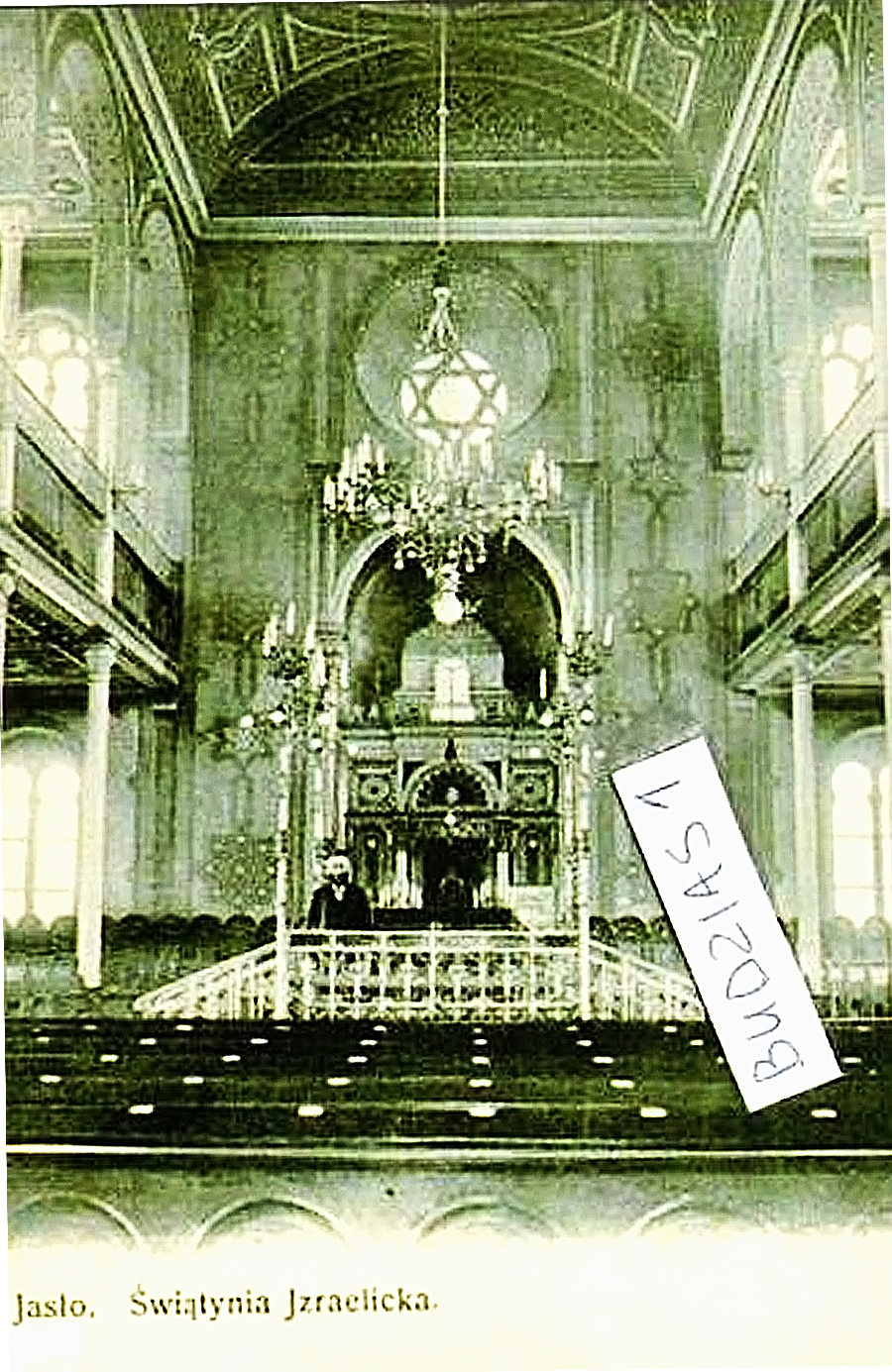
Recently, over 110 years after its first dedication, a team of engineers and researchers meticulously worked to accurately reconstruct the ark, which stands about 11.5 meters tall and 6 meters wide, with the capacity to hold up to 15 Torah scrolls.
This entire task was managed by 'Lavi Furniture Industries'. In a conversation with Micha Huberman, CEO of the company, he revealed that the work spanned a whole year. "It was crucial for us to reconstruct the ark identically to the original," he explains, "so we conducted extensive research at the Diaspora Museum and sent our representatives to examine archives in Poland to get a clear image of the holy ark and its details. We also used a photo restoration company, as the pictures we received were of low quality, eventually using a variety of different techniques until, with divine assistance, we managed to accurately recreate the synagogue's space and its holy ark."
The most touching moment, according to him, was the first day when worshippers arrived. "People entered the synagogue and immediately started to cry. It was so emotional. One of the worshippers is a Holocaust survivor who said he still remembers the rabbi preaching on the bimah in the synagogue. We showed him a photo, and he recognized the people and noted that they were all killed. Now coming to this place and bringing it back to life was an indescribably emotional moment."
The Challenge: Customizing for Each Community
The synagogue in Poland, which is considered very unique, is one out of the 5300 synagogues that Lavi Furniture Industries has furnished over the past few decades.
"Our factory was established over 50 years ago," says Huberman, "it all started when the first synagogue was built in Kibbutz Lavi, and we didn't know what to do about the furniture since back then, there were no factories in Israel producing synagogue furniture. We decided to do it with our own hands. We enlisted kibbutz members, some of whom were professionals, and the result was amazing — a unique synagogue with 12 pillars representing the twelve tribes, and a special journey to the prayer hall inscribed with the verse 'Out of the depths, I call to You, Hashem'. Actually, the synagogue is located at the highest point in the Lower Galilee, so it's visibly distinct from afar, proving to everyone that it's the most important thing to us in the kibbutz."
When the construction of the synagogue in Lavi was completed, a grand inauguration was held, which was attended by many participants who were very impressed by the beauty of the furniture. This led to additional requests for furniture for places of worship throughout the country, and thus, Lavi Furniture Industries was founded, now considered the largest of its kind in the country and the world.
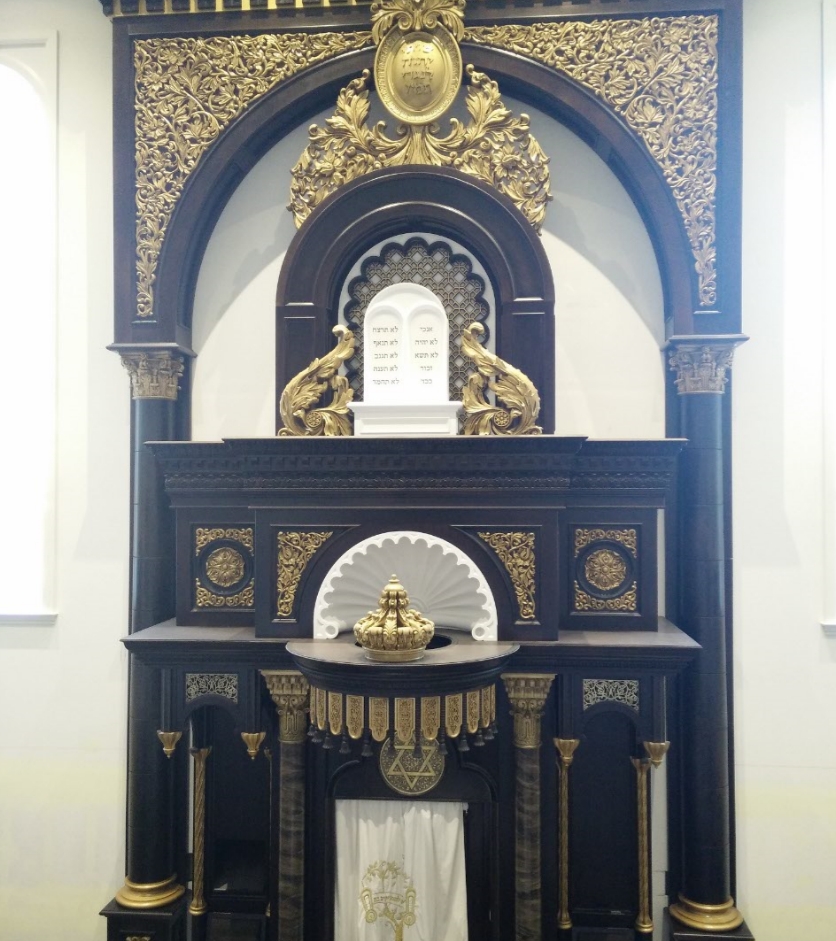 Reconstruction of the Holy Ark in Forest Hill
Reconstruction of the Holy Ark in Forest HillAnd what truly drove more than 5300 communities to turn to the factory over the decades, asking them to build furniture for their synagogues? Perhaps it's just the high quality, as Lavi works exclusively with solid wood furniture, importing logs from abroad and processing them locally. It might be the unique beauty, or maybe the customization for every need, as the factory manages to provide each synagogue with what fits it, according to the taste, style, and needs of its community members.
In recent years, the artist Avraham Fried joined the factory, having previously managed a leading studio in art projects at synagogues worldwide, boasting an impressive record of crafting over 1000 holy arks.
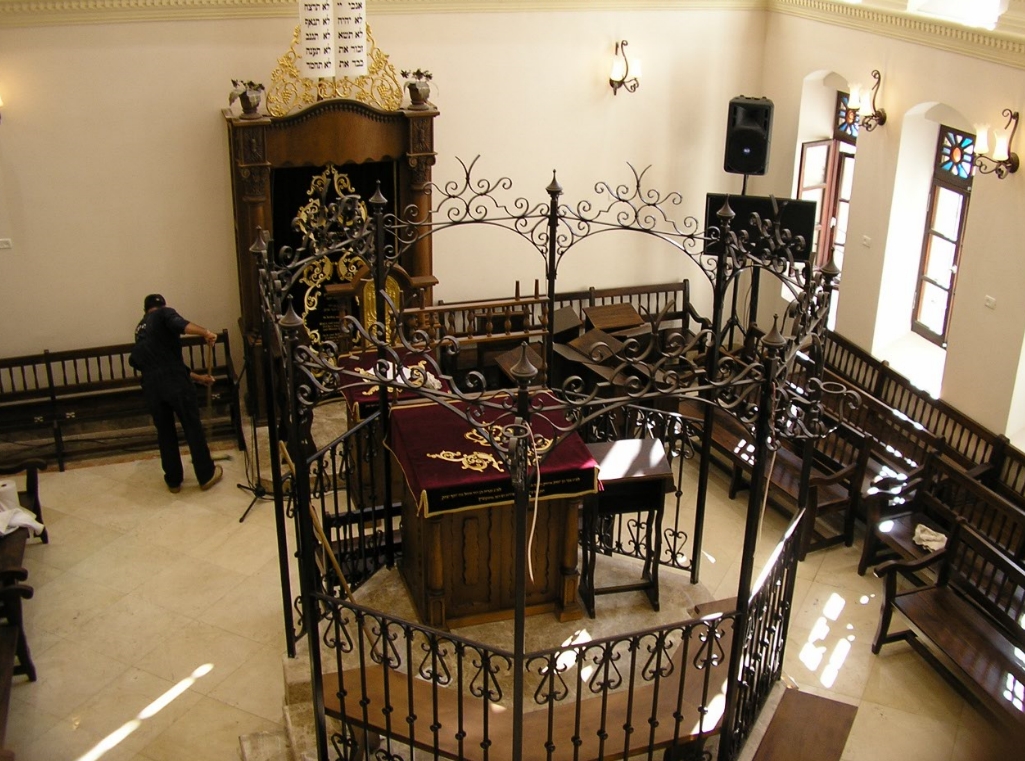 Ohel Yitzchak Synagogue
Ohel Yitzchak Synagogue"One of the first projects we undertook with the artist Fried was furnishing the gigantic synagogue of the Belz Hasidim in Jerusalem," recounts Huberman, "we built about 5000 seats, and he prepared the bimah and the holy ark, which is the largest in the world, with a facade carved in wood in various styles from Eastern Europe and North Africa. It towers at a height of 12 meters and a width of 8 meters, with a capacity for 70 Torah scrolls. By the way, we are currently working at Belz on adding hundreds more seats."
Reconstructing History
As mentioned, each synagogue has its unique needs, but Huberman emphasizes that they are unafraid of challenges. "On the contrary, we love taking on interesting projects. Our one ambition is to satisfy the worshippers, and we understand that there are seventy faces to the Torah and each community has its personal perspective according to which it wants its synagogue built. This indeed makes it more challenging for us at times, but that is our challenge."
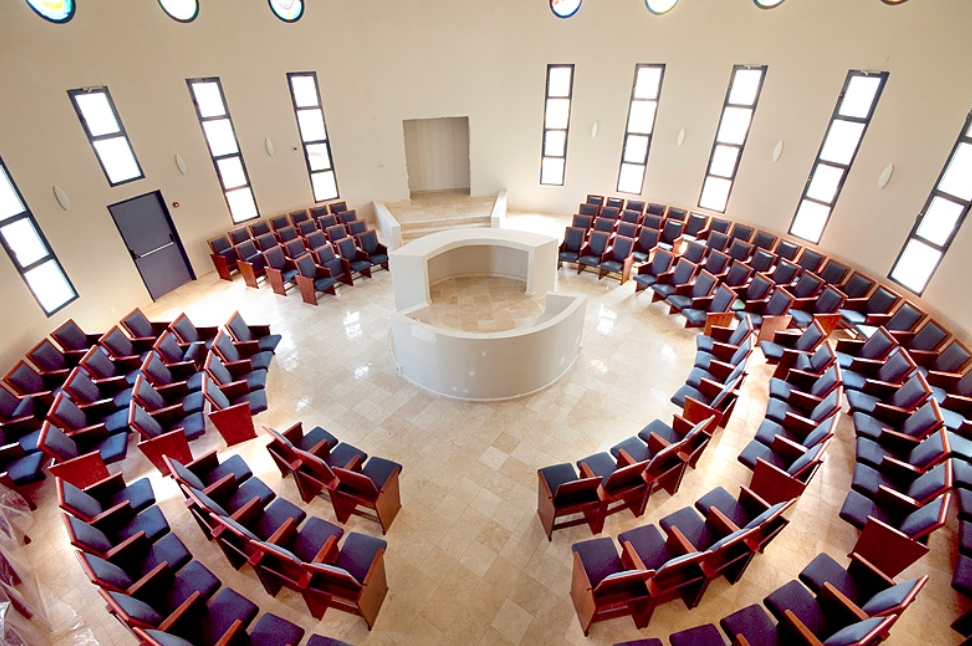 Synagogues in Amphitheater Style
Synagogues in Amphitheater StyleThis has also led them to introduce various interesting innovations over the years, such as synagogues styled uniquely like a holy ark shaped like a harp, or synagogues entirely designed around musical instruments: organs, guitars, and trumpets. Synagogues in intriguing colors such as white and grey or with gold, silver, and embossed elements in the style of synagogues in Morocco, and more.
And one of the bigger challenges, of course, is in reconstructing ancient synagogues. "Just these days we are beginning work on a reconstruction project of the holy ark and bimah of one of the Hasidic sects, in Manchester, England," announces Huberman, "we received a black-and-white picture of the synagogue that was there, and now we are about to reconstruct the ark. It’s truly not a simple task, as everything needs to be done with precision and perfect accuracy."
And when it comes to ancient synagogues, Huberman says there is a need to use materials that were actually used at the time, which is also not an easy task. "One day, the community of Baba Baruch Abuhatzeira approached us and requested that we refurnish their synagogue with all the elements matching the Moroccan style that was in Baba Sali's time in Morocco. We traveled specially to Morocco for that purpose and managed to import suitable woods and accessories exactly like those used in the synagogues of that period."
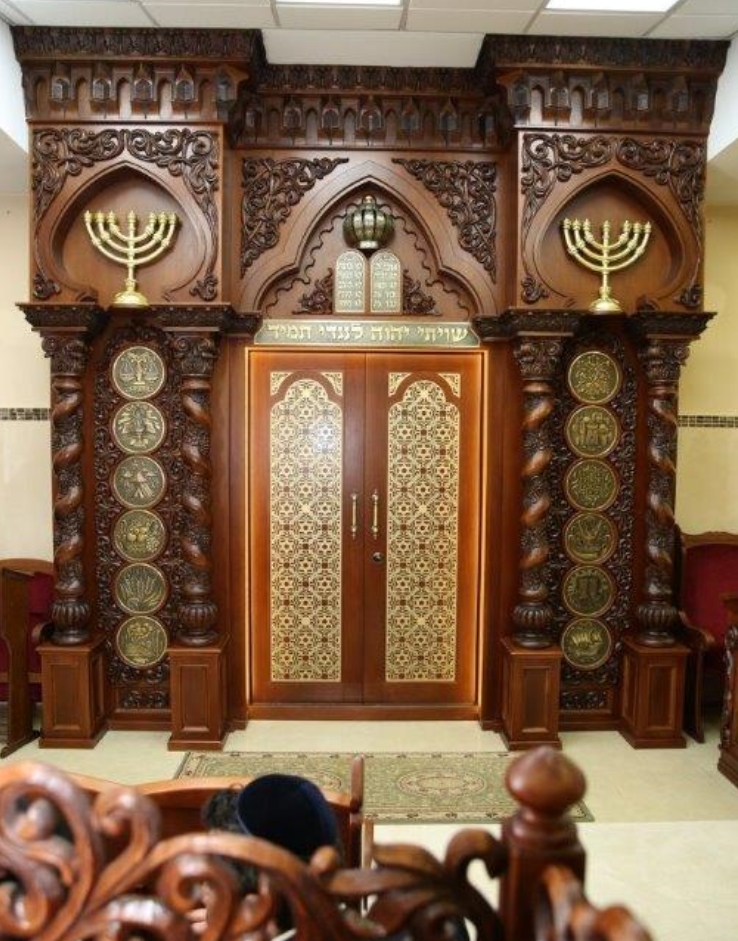 Baba Baruch Synagogue in Netivot
Baba Baruch Synagogue in Netivot
New Trend: Synagogues in Supermarkets
Alongside restoring history, Lavi is also aware of the contemporary reality. In recent years, they've realized that people spend several hours of their day shopping, which led to an incredibly exciting initiative - establishing synagogues in supermarkets, chains, and malls.
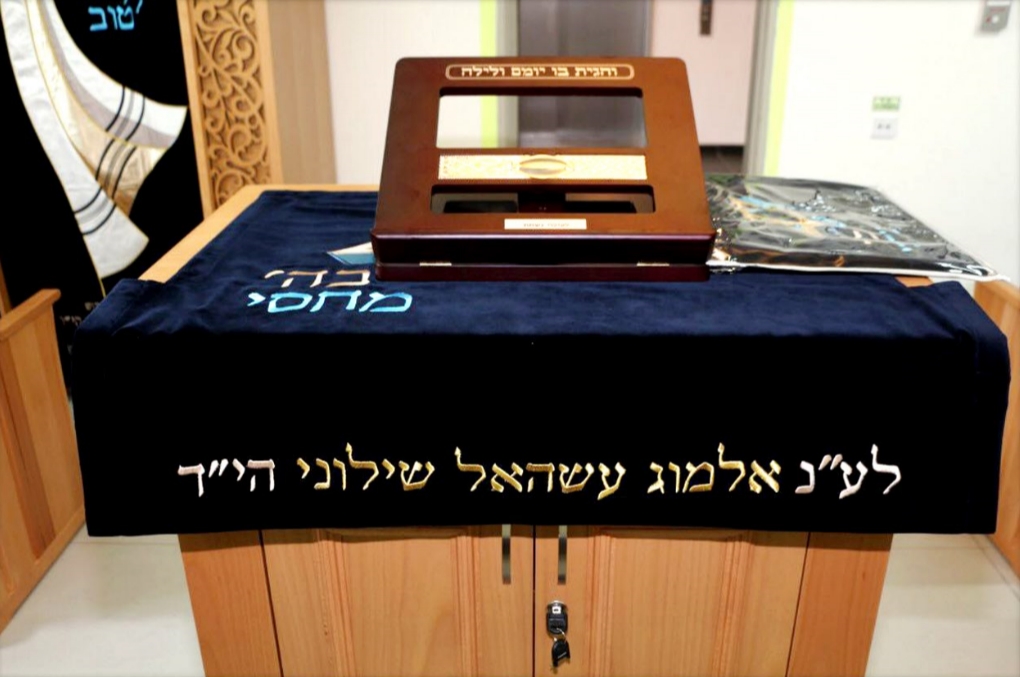 Synagogues in Supermarkets
Synagogues in Supermarkets"Last year, our company established about 50 synagogues in supermarkets of the retail chains Rami Levy, Yohananof, and Yayinot Bithan," announces Huberman, "and we even established synagogues in shopping malls, such as the Malha Mall in Jerusalem and the Azrieli Mall in Tel Aviv. I think it's worth noting that the network and store owners who establish synagogues deserve appreciation, as the project is not cheap at all. The average investment in establishing a synagogue like this ranges from 100,000 to 200,000 shekels. I am happy to say that this is a growing trend, and I estimate that in the next two years, approximately forty more synagogues will open in retail chains, malls, and sales centers."
And these days, Huberman notes, they are about to set a new record: "We recently completed the construction of the largest synagogue in hotels in Israel and worldwide. It is the synagogue located in the Lavi Hotel, comprising 230 seats, and 50 standing places, offering a grand holy ark, elaborate seating arrangements, libraries, partitions, and more. The synagogue area is approximately 250 square meters, and to the best of our knowledge, it is the largest synagogue in the world located within a hotel, so we plan to submit it for the Guinness World Records project."
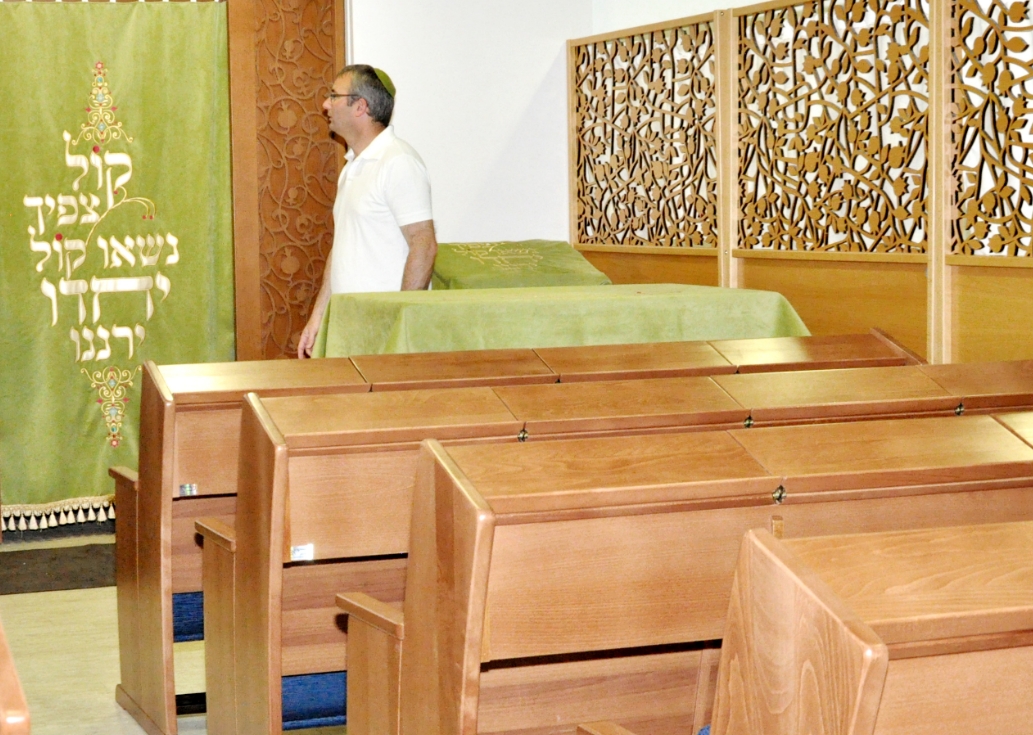 Synagogue in Lavi Hotel
Synagogue in Lavi Hotel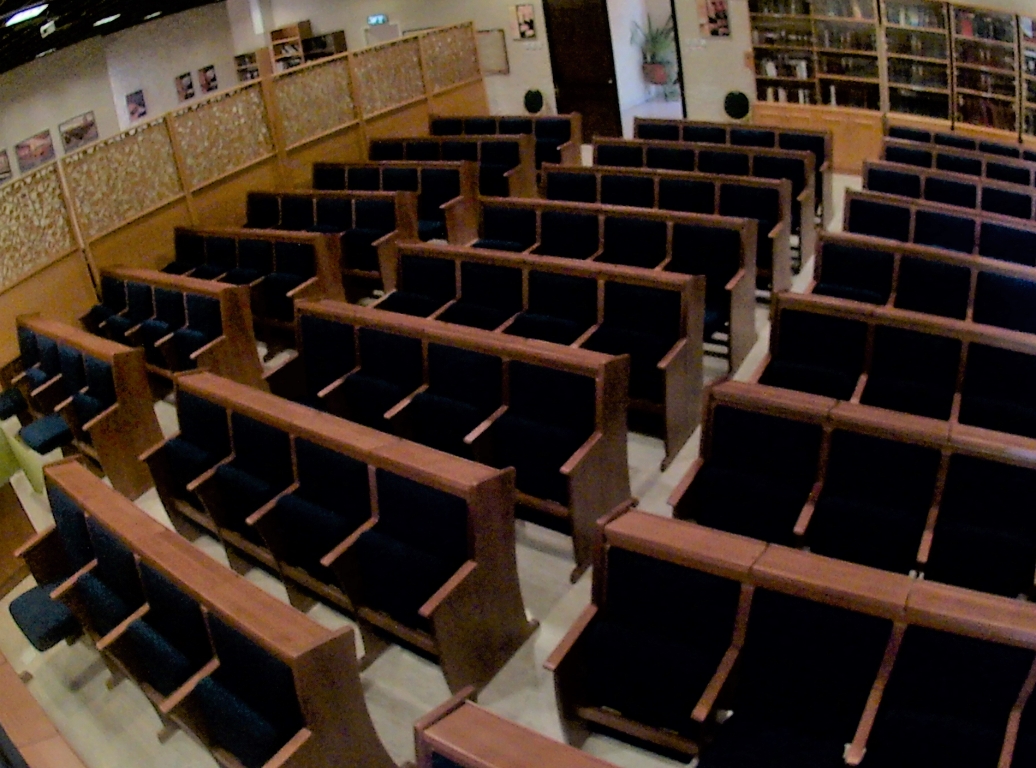
The Dream: Constructing Furniture for the Temple
Throughout the conversation, Huberman is energetic and full of enthusiasm for his work. But when asked what gives him the strength to continue this work for over 50 years, he becomes slightly more serious.
"What personally gives me the strength," he says, "is the knowledge that we have a special privilege to be a substantial part of the thousands of communities we've provided synagogue furniture for. It's known that Jews have the mitzvah to establish a synagogue, and we are part of this mitzvah. Of course, we are aware that it’s a privilege and also a duty, since as those responsible for establishing a place of worship, we must be a beacon of integrity and honesty. We must respect the synagogues we establish."
Ultimately, he points out that he also has a dream: "I aspire for us at Lavi Furniture Industries to be the ones to build the furniture for the Temple, just like Bezalel Ben Uri... I hope we merit this, and in the meantime, we're doing our internship."

